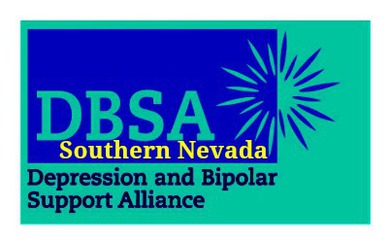
Consumer
A consumer is an individual with a mental illness seeking help, information, and support.
Allies
Allies are the friends, families, and other members of a consumer's circle of support.
Depression
Depression is a treatable medical illness involving an imbalance of brain chemicals called neurotransmitters and neuropeptides. It's not a character flaw or a sign of personal weakness. Just like you can't "wish away" diabetes, heart disease, or any other physical illness, you can't make depression go away by trying to "snap out of it."
Episodes of depression often follow stressful events like marital problems or the death of a loved one. People who have recurrent episodes of major depression are sometimes said to have "unipolar depression" (or what used to be called "clinical depression"), because they only experience periods of low, or depressed mood (unlike someone with bipolar disorder who goes through periods of both low and high mood).
While depression sometimes runs in families, many people with the illness have no family history of depression. The exact causes of depression still are not clear. What we do know is that both genetics and a stressful environment, or life situation, contribute to its cause. Usually, it's not one or the other, but a combination of both.
Symptoms:
- Prolonged sadness or unexplained crying spells
- Significant changes in appetite and sleep patterns
- Irritability, anger, worry, agitation, anxiety
- Pessimism, indifference
- Loss of energy, persistent lethargy
- Feelings of guilt, worthlessness
- Inability to concentrate, indecisiveness
- Inability to take pleasure in former interests, social withdrawal
- Unexplained aches and pains
- Recurring thoughts of death or suicide
Bipolar Disorder
Bipolar disorder (also known as manic depression) is a treatable illness marked by extreme changes in mood, thought, energy and behavior. It is not a character flaw or a sign of personal weakness. Bipolar disorder is also known as manic depression because a person's mood can alternate between the "poles" of mania (highs) and depression (lows). These changes in mood, or "mood swings," can last for hours, days, weeks or months.
Nearly six (6) million adult Americans are affected by bipolar disorder. It usually begins in late adolescence (often appearing as depression during the teen years), although it can start in early childhood or later in life. An equal number of men and women develop this illness (men tend to begin with a manic episode, women with a depressive episode), and it is found among all ages, races, ethnic groups, and social classes. The illness tends to run in families and appears to have a genetic link. Like depression and other serious illnesses, bipolar disorder can also negatively affect spouses and partners, family members, friends, and coworkers.
Bipolar disorder differs significantly from clinical depression, although the symptoms for the depressive phase of the illness are similar. Most people who have bipolar disorder talk about experiencing "highs" and "lows"—periods of mania and depression. These swings can be severe, ranging from extreme energy to deep despair. The severity of the mood swings and the way they disrupt normal life activities distinguish bipolar mood episodes from ordinary mood changes.
When people experience symptoms of both a manic and a depressive episode at the same time, they're said to be experiencing a mixed state (or mixed mania). They have all of the negative feelings that come with depression, but they also feel agitated, restless and activated, or "wired." Those who have had a mixed state often describe it as the very worst part of bipolar disorder.
Highs of Bipolar Disorder:
- Heightened mood, exaggerated optimism and self-confidence
- Excessive irritability, aggressive behavior
- Decreased need for sleep without experiencing fatigue
- Grandiose thoughts, inflated sense of self-importance
- Racing speech, racing thoughts, flight of ideas
- Impulsiveness, poor judgment, easily distracted
- Reckless behavior
- In the most severe cases, delusions and hallucinations
Lows of Bipolar Disorder:
- Prolonged sadness or unexplained crying spells
- Significant changes in appetite and sleep patterns
- Irritability, anger, worry, agitation, anxiety
- Pessimism, indifference
- Loss of energy, persistent lethargy
- Feelings of guilt, worthlessness
- Inability to concentrate, indecisiveness
- Inability to take pleasure in former interests, social withdrawal
- Unexplained aches and pains
- Recurring thoughts of death or suicide

